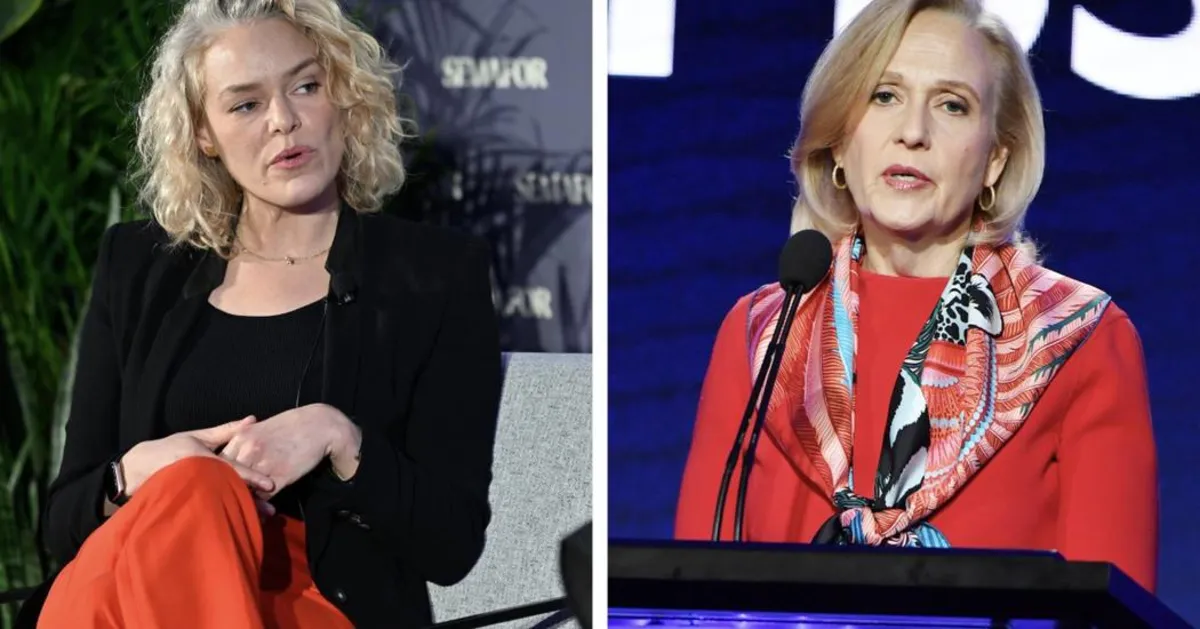
In a critical upcoming hearing, Katherine Maher, CEO of NPR, and Paula Kerger, CEO of PBS, are set to defend their organizations against potential funding cuts proposed by Congress and the Department of Government Efficiency, spearheaded by Elon Musk. This event will see a diverse group of witnesses, including Michael Gonzalez from the conservative Heritage Foundation, who has been vocal about defunding public media, and Ed Ulman, the chief executive of Alaska Public Media, an affiliate of NPR and PBS.
As the hearing unfolds, it is anticipated that Republican legislators will scrutinize Ms. Maher regarding alleged media bias at NPR, while Ms. Kerger could face inquiries about PBS programming that has drawn criticism, particularly the controversial segment “Drag Queen Story Hour.” This digital initiative has sparked extensive debate over content appropriateness, reflecting broader concerns about public media programming.
The Corporation for Public Broadcasting, a government-funded entity, received an allocation of $535 million this year, with the majority directed towards public radio and television stations across the United States, including significant portions for NPR and PBS. In their prepared testimony released to Congress, both Ms. Maher and Ms. Kerger emphasized the vital role that this funding plays in keeping citizens informed and educated across the country.
The current atmosphere surrounding public media funding recalls historical moments, such as the dramatic confrontation in 1969 when Fred Rogers, creator of “Mister Rogers’ Neighborhood,” addressed Congress to protest cuts proposed by the Nixon administration. His heartfelt testimony highlighted the importance of public media for children, leading to the preservation of funding at that time. This historical precedent underscores the ongoing relevance of public media in American society.
Both Ms. Maher and Ms. Kerger are navigating challenging landscapes within public media. Ms. Maher, who joined NPR last year, has a background in digital media leadership, previously serving as the CEO of Web Summit and The Wikimedia Foundation. She has faced scrutiny over perceived liberal biases within NPR and has actively sought to engage with Congress to address these concerns, emphasizing a commitment to representing a diversity of views.
Meanwhile, Ms. Kerger, the longest-serving PBS CEO, has tackled the decline of traditional television viewership and the rise of streaming services. Under her leadership, PBS has made strides to adapt by expanding programming availability on platforms like YouTube TV and launching PBS Passport, a subscription service. However, she too faces challenges, particularly regarding programming that has received criticism from conservative factions.
Marjorie Taylor Greene, who has publicly called for the defunding of NPR and PBS, will preside over the proceedings. She has expressed strong opinions about the perceived biases in public media, labeling NPR as a “leftist-controlled propaganda” outlet. Greene's stance highlights the growing polarization surrounding public media funding, reflecting broader national debates about media bias and accountability.
Amidst these discussions, there have been questions regarding the compliance of NPR and PBS with federal regulations. Mr. Carr, a former FCC official, has raised concerns that public broadcasting stations may be crossing the line into prohibited commercial advertising with their underwriting announcements. This scrutiny adds another layer of complexity to the ongoing debates surrounding public media funding and its implications for democratic discourse.
As this hearing approaches, the futures of NPR and PBS hang in the balance. Supporters argue that cutting government funding would jeopardize access to reliable information, particularly for rural communities. However, the ongoing discussions reflect a significant ideological divide regarding the role of public media in America. Both Ms. Maher and Ms. Kerger stand ready to defend their organizations and the essential services they provide to the public.
The upcoming congressional hearing presents a pivotal moment for public broadcasting in the United States. With the potential elimination of federal funding on the table, the testimonies of Ms. Maher and Ms. Kerger will be critical in shaping the future of NPR and PBS. As the dialogue around media bias, funding, and public service continues, the outcome of this hearing could have lasting implications for public media and its role in American society.